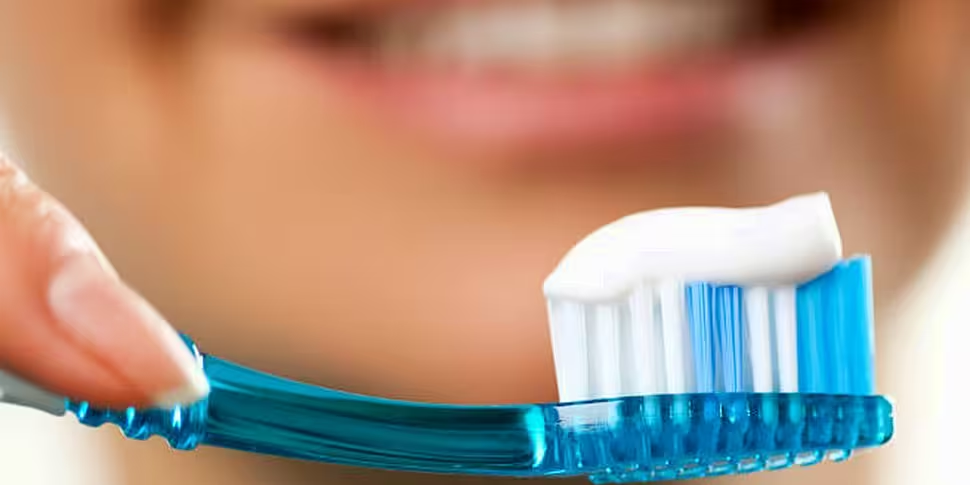Half of adults in Ireland admit to having gone to bed without brushing their teeth - because they're too tired.
Healthcare company GSK has released the results of a new study which found that 40 per cent adults simply forget and over a third are just too lazy to
A third of respondents admitted to leaving the house having only used mouthwash in the morning.
And a quarter have just used water - without toothpaste, while 15% have brushed their teeth with their finger.
With just half of all adults keeping to a strict regimen, a series of dental avoidable dental problems will result. Dentist, and President of the Irish Dental Association, Dr Anne Twomey dentist said “People think that missing one brush won’t be a problem, but over time a lack of good hygiene can cause a whole host of unwanted oral health conditions.”
“Not brushing at least twice a day can cause the build-up of plaque and calculus (hardened plaque), as well as tooth decay which can lead to sensitivity and cavities that require fillings. In a 24 hour period, we are awake for around 17 hours, equivalent to 1,020 minutes. You only need to spend around four minutes brushing, and a couple of extra minutes per day flossing to avoid having problems.”
There were some other interesting findings in the survey
- 15% admitted to having brushed their teeth with their finger
- 8% have lied to their partner about whether or not they have brushed their teeth
- Just 24% of those surveyed said that over a two week period, they would brush their teeth everyday without missing a brushing (Based on two brushes per day, morning and night)
- When it comes to the dental issues experienced by Irish: 62% of those surveyed reported having bleeding gums at some stage, while 61% reported experiencing sensitive teeth. 28% have encountered gum recession. 30% have experienced mouth ulcers and 16% have reported suffering from dental abscess.
- 32% of all those surveyed said that they have lost an adult tooth
- 29% of those surveyed have 6 fillings or more while just 5% reported that they have no fillings whatsoever
Dr Twomey's 10 tips for better care of your teeth
1. Brush your teeth twice a day for at least two minutes each time
The ideal times to brush your teeth are before bedtime and at least once more during the day (first thing in the morning is recommended). If you choose to brush after a meal or drink, wait around 40 minutes before your brush as this helps to avoid rubbing off the enamel which is softened after consuming acidic foods and drinks.
2. Use a suitable toothpaste
Most people are never taught how to brush or floss properly (if at all), and aren’t aware that you need to use an appropriate toothpaste.
3. Use floss or other interdental cleaning aids
Ask your dentist to advise you on the right aid and size for your mouth. Your toothbrush will not reach areas where the teeth contact each other, so if you don’t use interdental cleaning products, you’re not completely cleaning your mouth and this can lead to decay, inflammation of gums and many other issues. It is in the gaps between your teeth where you mainly trap food when you eat. Regular flossing especially at night is imperative in maintaining a happy and healthy mouth.
4. Use mouthwash, at least once a day at a different time from brushing, eg after lunch
Mouthwash helps protect your mouth between brushing by maintaining lower levels of bacteria. Importantly though, mouthwash only compliments brushing and flossing but does not replace either. For best results, no food or drink should be consumed for 30 minutes after it is used. Swish well, spit and don’t rinse.
5. Spit, don’t rinse. Leaving toothpaste in your mouth helps protect your teeth
Fluoride is a mineral which helps to strengthen tooth enamel, helps increase resistance to tooth decay and can also reduce the amount of acid produced by bacteria in your mouth. Therefore try not to rinse your mouth out with water after brushing as you’ll wash away all the fluoride.
6. Use disclosing tablets to see how well you are cleaning your teeth
They will temporarily stain any plaque so you can see what areas you’re missing.
7. Use a small headed toothbrush with soft, rounded bristles and a comfortable easy grip handle
The approach should be to slowly and carefully follow a routine ensuring that they cover all areas, making sure no food remains in the mouth, and that no tooth has been missed.
8. Prevention is key
Ask your dentist to teach you how to maintain a routine with correct oral hygiene procedures suitable for your individual needs as this is the key to long term success. Historically, people have grown up watching their parents put a toothbrush in their mouth and simply brushing around, assuming it is quick and that’s all that is needed.
9. Make brushing part of your bedtime routine
It can help if you connect the routine of brushing to the last thing you do before sleeping.
10. Visit your dentist for regular professional cleaning and check-ups
If you notice any unexpected changes in your gums or teeth (such as bleeding, redness or sensitivity), or feel something just isn’t right in your mouth (perhaps a lump, sharp edge on a tooth or other pain), book an appointment as soon as possible before the problem becomes bigger and painful. Small issues will regularly get sorted out easily and relatively cheaply by a dentist. The longer you leave a problem, the more time, effort and cost it will take to deal with, and you may suffer unnecessarily and for no good reason in the meantime.









